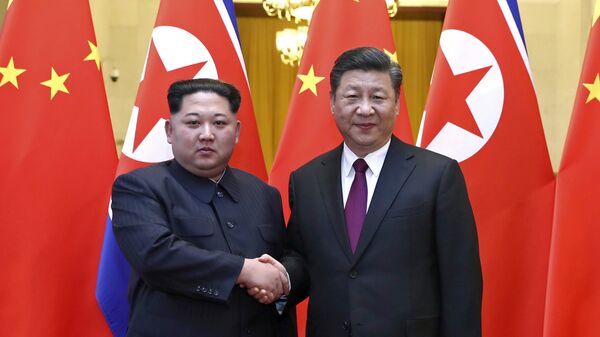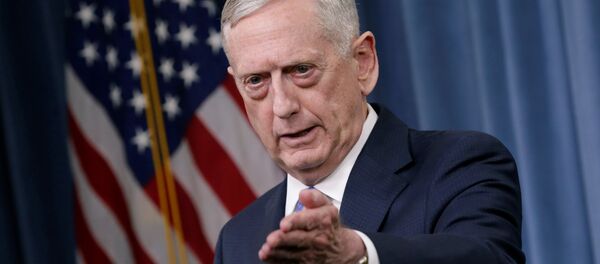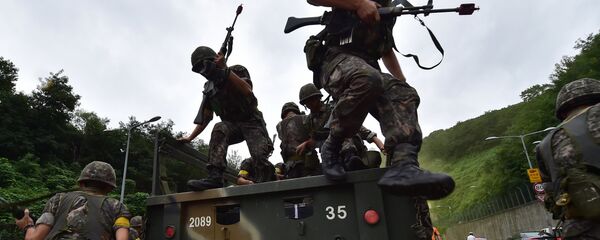Although the US and North Korea have achieved some symbolic progress in relations, it is necessary to further implement the agreements signed by Washington and Pyongyang on June 12 in Singapore, says Da Zhigang, director of the Institute of Northeast Asia under the Heilongjiang Provincial Academy of Social Sciences, emphasizing China's indispensible role in the region's affairs.
"While discussing the denuclearization of the Korean Peninsula, one can see that the Six-Party talks held from 2003 to 2008 did not yield any results," Da told Sputnik China. "Bilateral negotiations are underway between the two Koreas, the DPRK and the US, and between China and South Korea. The situation on the Korean Peninsula has become the focus of attention for the entire international community. The problem of denuclearization is multifaceted, and cannot be solved without China."
The Chinese academic pointed out that Beijing had played an important role in translating the US-North Korean standoff into a diplomatic dialogue.
"Earlier, China came up with the plan of 'double freezing,' 'mutual concessions' and 'working out peaceful mechanisms,'" Da said. "Now we see that the situation on the peninsula is developing along the trajectory set by the People's Republic of China [PRC]. For example, the United States announced the suspension of military exercises, and North Korea, in turn, halted nuclear testing, promised to release the Americans held in custody, and dismantled a nuclear test site. I believe that in the future, North Korea will act in a similar positive manner."
For his part, Russian military analyst Vladimir Evseev, the deputy head of the Institute of CIS countries, has called attention to North Korean leader Kim Jong-un's frequent visits to China. According to the analyst, the visits clearly indicate Beijing's immense influence on its neighbor.
"It is obvious that the US will not be able to solve the problem of the Korean Peninsula without China," the military analyst stated. "That is why the four-sided format of the talks was chosen: The two Korean states were joined by China and the United States. I believe that the US Secretary of Defense [Mattis] will try to find out the position of the Chinese side regarding concrete steps aimed at denuclearizing the Korean Peninsula in the context of North Korean security guarantees."
On the eve of Mattis' visit to Beijing, analysts expressed skepticism about the Pentagon chief's trip, citing increasingly deteriorating US-Chinese relations amid the ongoing Sino-American tariff spat and the Pentagon's decision to exclude China from the 2018 Rim of the Pacific (RIMPAC) annual naval drills in May 2018.
On June 15, the Trump administration imposed additional tariffs on $50 billion in Chinese goods triggering tit-for-tat measures on the part of Beijing. However, that has not prevented the White House from threatening China with tougher trade restrictions.
According to the military analyst, this is rather plausible, given that Mattis is also going to pay an official visit to Seoul this week. The fate of the US missile defense system in South Korea is "one of the issues that will be unequivocally discussed" in Beijing and then in Seoul, he believes. The deployment of the THAAD complex in South Korea has long prompted Beijing's security concerns.
Ahead of Mattis' visit, Senior Colonel Ren Guoqiang, a spokesman for China's Ministry of National Defense, underscored that "China attaches great importance to developing military relations with the US and hopes that the US and China can meet each other halfway and work together to make bilateral military relations an important stabilizing factor for relations between the two countries."
The views and opinions expressed by the contributors do not necessarily reflect those of Sputnik.





